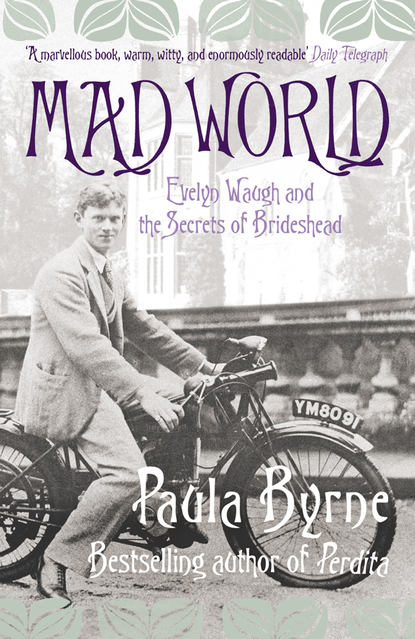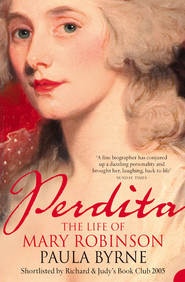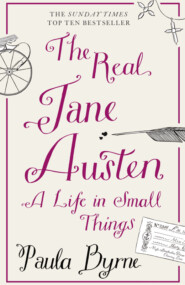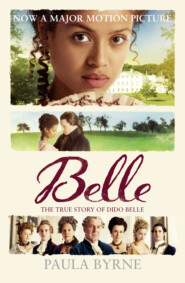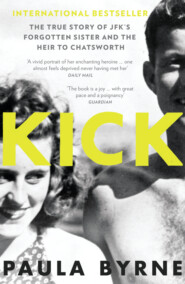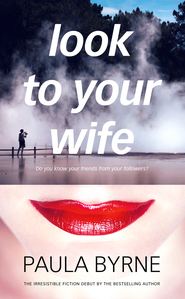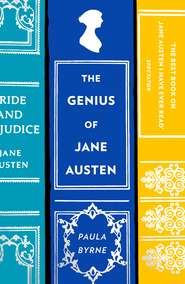По всем вопросам обращайтесь на: info@litportal.ru
(©) 2003-2024.
✖
Mad World: Evelyn Waugh and the Secrets of Brideshead
Настройки чтения
Размер шрифта
Высота строк
Поля
Filming took place in July, shooting locations being Oxford, Hampstead Heath and Arthur Waugh’s back garden. Elsa Lanchester played the heroine, an evangelical cabaret singer called Beatrice who saves the day by drawing the Prince from Urquhart’s clutches. Evelyn, kitted out in a blond wig, played Sligger, alluding freely to the dean’s homosexuality by fondling the Prince of Wales (played by Greenidge’s brother John, known as ‘the Bastard’). John Sutro was Cardinal Montefiasco and Alec Waugh the cardinal’s mother. Elmley played the Lord Chamberlain, whose real life counterpart would without doubt have banned the script had there been an attempt to release it commercially. Old Arthur Waugh enjoyed the shenanigans immensely.
Evelyn also doubled in the role of a penniless peer called Lord Borrowington who appears to be a cocaine addict. He was unapologetic about advertising the setting of some scenes in the distinctly unglamorous location of North End Road, Golders Green. Elmley was less eager to advertise himself: he acted under the assumed name Michael Murgatroyd for fear of offending his father, who was close to becoming leader of the Liberals in the House of Lords. An officer in the Guards, who played the part of the king, also hid behind an assumed name. Elsa (who later married Charles Laughton) took no fee, only free lunches. The main purpose of the film was to poke fun at Sligger Urquhart for being ‘Roman Catholic and a snob’. We do not know if he ever saw The Scarlet Woman but it was shown at the Oxford University Dramatic Society (OUDS) in 1925. Greenidge came to believe that the film had caught the subversive spirit of Oxford in the twenties, and represented ‘an Evelyn who had seen through Roman Catholicism and the British aristocracy’ – something that could not exactly be said of Brideshead Revisited. The script undoubtedly reveals Evelyn’s interest in religion, his gift for farce and his early attraction to the more glamorous aspects of modernity embodied in the world of movie-making. The film also features a very fine motor car, which probably belonged to Elmley.
The Scarlet Woman was acted in a style that would now be called high camp. Greenidge was an active homosexual, and the entire film-making project was clearly deeply bound up with the Hypocrites’ willingness to push at the boundaries of taste, decency and the law.
Terence Greenidge later remembered Evelyn’s mother telling him that her son had changed profoundly by this time, that as a child he was loving, fun and trusting, but that something had happened to put him on his guard. Yet he was always, according to Greenidge, ‘joyously, healthily rude, as was the great Dr Johnson’. The combination of guarded watchfulness and unabashed smuttiness may suggest that Evelyn was simultaneously attracted to and repelled by the world in which he found himself.
The bohemian gatherings he attended with Alec were often ‘bottle parties’ in ‘unfashionable areas’. He hankered instead for the statelier world of engraved visiting cards and black velvets. The bohemian set didn’t really suit him. The parties were full of actors, painters, and men just down from the university who had no idea of what to do with their lives. Men, in other words, who were all too like himself.
In his diary he recalled one particularly memorable party at Mrs Cecil Chesterton’s flat in Fleet Street, at which ‘pansies, prostitutes and journalists and struggling actors’ all got ‘quite quite drunk and in patches lusty’. Among the guests he singled out a certain ‘Peter Pusey with whom Hugh Lygon sodomises’. Hugh’s taste for the crime that took its name from the City of the Plain was no secret. Alec, meanwhile, turned up late and a little drunk, then proceeded to carry off ‘the ugliest woman in the room’.
At another party Evelyn was so drunk that he ended up playing football with the butler’s top hat. Parties in private houses were followed by hard drinking at nightclubs, but there was a seedy and unglamorous feel to it all. All the promise of his Oxford days seemed to have evaporated. The Scarlet Woman had been a reprieve, but Evelyn had no prospects. It seemed that all his richer friends had places to go after graduating, whereas he sensed himself becoming a hanger-on on the fringes of the artistic world, or, even worse, a sponger (the kind of character he would represent so mercilessly in the character of John Beaver in A Handful of Dust).
He was yearning for his lost paradise. Spiritually he was still at Oxford. Its lure, the knowledge that the city of dreams was ‘still full of friends’, made him quit art school. Invited to an Oxford party by John Sutro, he accepted gratefully, eager to be reminded of what he was missing. His unexpected attendance was greeted warmly. All the old Hypocrites were there: Harold Acton, Hugh Lygon, Robert Byron, even his first lover Richard Pares. It was a luncheon party that seemed to stretch on for ever, as in the old days. They ate hot lobster, partridges and plum pudding, drank sherry, mulled claret and ‘a strange rum-like liqueur’. Hugh, as usual, was drinking too much. Evelyn left in time for a tea party and then a beer at the New Reform Club with Lord Elmley and Terence Greenidge. A message then came from Hugh, by this time installed in the bar of the Dramatic Society, proposing a trip to Banbury. But instead they reconvened in the old Hypocrites’ rooms, where they drank whisky and watched The Scarlet Woman. Evelyn’s recollection of the rest of the evening was hazy: all he could remember was that he got hold of a sword and escaped from Balliol via a window after the college had been locked for the night.
The next morning he started drinking again with Hugh, and then they had lunch together. An umbilical cord connected him still to his alma mater. He found himself dressing as an undergraduate again, sporting the latest fashion of turtleneck sweater and broad trousers. He was delighted with the roll-neck top – it was ‘convenient for lechery because it dispenses with all unromantic gadgets like studs and ties’. The garment also served to hide the boils on the necks of dermatologically challenged young gentlemen.
The Jazz Age had come to Oxford. Cars full of flappers came up from London every weekend. There was a new smart set. They danced to the Harlem Blues and the strains of Gershwin. Evelyn threw himself into the rowdy, partying atmosphere. He returned every weekend. But he knew that he was becoming self-destructive. He was often in the company of Hugh. Once he was drunk for three days – a condition that for Hugh was perfectly normal. After lunching together they would continue drinking until they were too drunk to stand.
The only way out from this alcoholic spiral was to get a proper job. And the only job that seemed suitable for an Oxford man who had failed to achieve Honours and who had no inclination for either physical labour or further study was schoolmastering. With great reluctance, he began to look for a position.
Before descending into the teaching profession, Evelyn fell in love again. This time, though, it was not with a fellow undergraduate but with an entire family. They were the Plunket Greenes. For Evelyn, they would prove to be the forerunners of the Lygons.
He of course knew David and Richard Plunket Greene from Oxford. They were members of the Hypocrites and very hard to miss: David was six foot seven inches tall and Richard a powerfully built young man. David, a ‘languid dandy devoted to all that was fashionable’, would die a heroin addict at a tragically early age. Coote (Lady Dorothy) Lygon remembered that he took drugs at a time when that was a very fast thing to do. When Hugh brought him home to Madresfield she used to swoon at the very sight of him. She developed a huge crush.
Evelyn became close friends with Richard, eventually serving as best man at his wedding. The boys’ father, Harry, was a singer and their mother a gifted amateur violinist. Harry Plunket Greene was friendly with England’s leading composer, Edward Elgar. He sang the baritone part in the first performance of Elgar’s Dream of Gerontius and was the first to sing settings of A. E. Housman’s poems, A Shropshire Lad. He frequently appeared in events at Elgar’s Malvern Concert Club. This brought him into contact with the Lygons, who were Malvern’s most famous family and leading patrons of the festival. Elgar was supposed to have composed the most enigmatic of his famous Enigma Variations as a musical portrait of Hugh’s aunt, Mary. When Plunket Greene married Gwen Ponsonby, he came into a family relationship with the Lygons, who were cousins to the Ponsonbys.
David was soon to marry and in short order divorce Babe McGustie, the gold-digging stepdaughter of a prominent bookie. Richard fascinated Evelyn with his eccentricities and his tinge of melancholy. He was piratical in appearance, sporting earrings and a cravat, while smoking strong, dark tobacco. Evelyn described him as ‘good with boats’ and passionate in the way he threw himself into everything: ‘he brought to the purchase of a pipe or a necktie the concentration of a collector’. One moment he would be a connoisseur of wine, the next a racing motorist, then a jazz lover, and before long an aspiring writer of detective fiction. But he was never a bore with his passions. He brought to each new hobby ‘the infectious absorption of an adolescent’. Not a bore and always amusing: for Evelyn, this was the highest praise.
Evelyn’s admiration of the handsome Plunket Greene brothers in his Oxford years transferred itself into infatuation with their sister, Olivia. He lacked the experience and ‘force of purpose’ to conduct a proper courtship, so the relationship became instead an ‘intimate friendship’ of a kind that established a pattern for a succession of future liaisons with upper-class, sexually unavailable women. The pattern was always the same: ‘doting but unaspiring on my part, astringent on hers’. One cannot help but think of the adventures in unrequited love of Bertie Wooster’s friend Bingo Little.
Harold Acton said that Olivia had ‘minute pursed lips and great goo-goo eyes’. Evelyn considered this description unfair. She was not a conventional beauty (which her mother was), but she was fashionable and graceful, dressing in black and heavily made up with cosmetics that enhanced her enormous eyes in a pixie-like face. Evelyn loved her personality. He thought that she combined ‘the elegance of David with the concentration of Richard’. What drew him to her was the very quality that had drawn him to her brothers: her capacity for passionate but short-lived enthusiasms. She lived every moment to the full.
Some saw a mad streak in her, though for Evelyn this was always tempered by her essential delicacy and fundamental shyness. She did not seek others out: people were drawn to her. Evelyn accepted that she could be a nag and a bully, that she suffered from ‘morbid self-consciousness’ and was ‘incapable of the ordinary arts of pleasing’. Perhaps he loved her because these deficiencies were also his own. ‘A little crazy; truth loving and in the end holy’, she was his first true heterosexual love. But she made him miserable.
Fiercely loyal to those he loved, Evelyn withheld from his autobiography the information that Olivia went on to have a very unhappy life. She became an alcoholic and died a recluse, unmarried. It was no coincidence or mere ill fortune that so many of Evelyn’s friends fell victim to alcoholism: the art of heavy drinking was virtually a prerequisite for his friendship. In sharp contrast to his first male love, Richard Pares, Olivia could hold as much liquor as Evelyn. Like him, she lost her inhibitions when under the influence. Her aura of melancholy made her more like Hugh and Alastair: it added lustre to her beauty, but its corollary was alcoholic dependency and despair.
They met at pubs for lunch and spent days at Underhill. Once he turned up to see her, already drunk, carrying three bottles of champagne under his arm, which they proceeded to consume out of teacups and various pots and other china receptacles that they found around the place. He liked her extremes, her melancholy and wild excesses. They got drunk together, they quarrelled, they read Browning, Plato and Dostoyevsky. She teased him, she loved his intelligence, but she did not want to go to bed with him (even though she was highly sexed, rating her lovers on their performance and counting Paul Robeson among her conquests). ‘A ghost with a glass of gin in her hand’, she was also in love with religion – to a degree that later became maniacal. She once wrote Evelyn a ‘raving sixteen page letter describing a recent visit to heaven’.
Evelyn acknowledged in his autobiography that his feelings for Olivia were a projection of his love for all the Plunket Greenes, who were so different from the Waughs: ‘I had in fact fallen in love with a whole family, and, rather as Mr E. M. Forster describes in Howards End, had focused the sentiment upon the only appropriate member, an eighteen-year-old daughter.’
Harry Greene, whom Evelyn described as a ‘very handsome Irishman’, was only occasionally on the scene, having left to live with his mistress. The person who truly cast a spell over him was the matriarch of this magnetic though flawed family, Gwen Plunket Greene. Evelyn encountered her on New Year’s Day in 1925. He wrote in his diary: ‘I met Mrs Greene for the first time and loved her.’ She was a first draft for the magnificent but monstrous Lady Marchmain. Gwen exerted a magic spell over him with her beauty, poise and humour. He later realised that her serenity was a consequence of a ‘hidden life of prayer’. She would later convert to Roman Catholicism and was already heading in that direction.
Evelyn’s diary records countless invitations to tea, dinner parties and family holidays with the Plunket Greenes. They were unsettled and moved house five times in ten years – ‘during which’, noted Evelyn, ‘I was practically a member of the family’. That the family was on the point of converting to Catholicism may have been an additional attraction.
Richard Plunket Greene was in the same position as Evelyn: ‘workless and penurious’. In his case, the position was aggravated by his desire to get married. His decision to apply for a position as a schoolmaster had prompted Evelyn to follow suit. It was the obvious option. As Evelyn once wrote to his school friend, Dudley Carew, ‘no one in our class need ever starve because he can always go as a prep school master, not a pleasant job but all roads lead to Sodom’.
The usual route was to sign up with the scholastic agency Gabbitas and Thring (W. H. Auden nicknamed them ‘Rabbitarse and String’). Evelyn Waugh, John Betjeman, Graham Greene and the fictional Paul Penny-feather of Decline and Fall all passed through its door. Greene said that to do so was to ‘pawn yourself instead of your watch’.
In early January 1925, Evelyn was interviewed by the headmaster of the prep school Arnold House. The name may have been evocative of the great Thomas Arnold of Rugby, but the location was less promising: it was in Denbighshire in North Wales, which could hardly have been further from Oxford.
Mr Banks, the head, ‘a tall old man with stupid eyes’, offered the post forthwith. He was desperate and, if Evelyn is to be believed (he is probably not to be), only one question was asked: ‘Did he possess a dinner jacket?’ This was necessary to entertain the wealthier parents. With only a couple of weeks to go before the start of term, Evelyn threw himself into a farewell whirl of socialising with the Plunket Greenes.
There was a disastrous evening at the Café Royal, where champagne cocktails were drunk, followed by oysters and chablis. Olivia disgraced herself. A few days later Evelyn noted in his diary that he had attended a dinner party of his brother Alec’s that was ‘almost wholly spoiled by the abominable manners of the Greene family, who arrived fifty minutes late’. After dinner they went to the theatre and then on to a nightclub where, drunk again, Olivia began kissing a handsome fellow called Tony Bushell. Evelyn tried unsuccessfully to get equally drunk himself. He was very rude to Olivia, but she was in no condition to take offence. The next day, ‘with a glowing resentment against the Greene family’, he sent word that he was leaving ‘for the country’. But that evening he spoiled his gesture by getting drunk and calling at the Plunket Greenes’ in the early hours of the morning, accompanied by two friends. He said that he would not leave until Olivia knelt down and apologised to him. She declined and he broke a gramophone record. A version of the episode was later incorporated into his novel A Handful of Dust.
Amends were made before he went north. Olivia came to see him at Underhill where she told him that he was a great artist and should not become a schoolmaster. He was upset at the thought that she was finally beginning to show interest just at the moment when he was leaving for North Wales: ‘I went to bed feeling more desolate than I had felt since the embarkation of Alastair.’ Whilst he knew that marriage was out of the question, he felt that he was getting close to a romantic and sexual relationship. Women, he was beginning to discover, were far more complex and tricky than men.
He left for Arnold House on 23 January 1925. When he arrived there he found a telegram awaiting him from Hugh Lygon and John Sutro. It read ‘On, Evelyn, On’.
CHAPTER 5 In the Balance (#ulink_c7d90802-270b-5cb0-a186-68458aa7f4d6)
Despite his misgivings, Evelyn enjoyed his brief experience as a schoolmaster. When John Betjeman was forced to turn to teaching, Evelyn assured him that ‘You will remember these schooldays as the happiest time of your life … not entirely facetiously.’ More importantly, the time at Arnold House, in all its glorious awfulness, gave Waugh the inspiration for his first novel.
A letter to his mother on his arrival described the haphazard management of the establishment: ‘it is the most curiously run school that ever I heard of. No timetables nor syllabuses nor nothing. Banks [headmaster] just wanders into the common room and says ‘‘There are some boys in that classroom. I think they are the first or perhaps the fourth. Will someone go and teach them Maths or Latin or something’’ and someone goes and I go on making a wood engraving.’ The wood engraving was for Olivia, whose hold still consumed him. He felt cut off. The school was in Llanddulas, a tiny town sandwiched between Rhyl and Colwyn Bay.
His wit made him popular with the boys and he in turn found them amusing, usually unintentionally so. ‘Yesterday in a history paper,’ reads a diary entry written on a cold February night, ‘the boy Howarth wrote: ‘‘In this year James II gave birth to a son but many people refused to believe it and said it had been brought to him in a hot water bottle’’.’
One of the new masters was itching to start a mutiny against the amiable and ineffectual headmaster. ‘I hope there will be trouble,’ responded Evelyn. He found some of the boys ghastly, but warmed to others among them. He let the clever ones read racy French novels whilst he did his own work. When they asked what he was writing, he would reply: ‘A history of the Eskimos.’ He continued to dress somewhat in the manner of Mr Toad – in plus fours, a tweed jacket and a roll-neck sweater with a check collar peeping out. He took to wearing spectacles and smoking a pipe. He also grew a moustache. Like his fictional alter ego Paul Pennyfeather, Evelyn gave organ lessons despite being not in the least musical.
Though he made the best of the place, he was low in spirits, missing the Plunket Greenes and thinking of his past life. He was desperate for news from the city of his dreams, writing to Harold Acton and pleading for updates on the Hypocrites.
When he returned to London in the holidays he saw a lot of Olivia. As usual, her company was synonymous with heavy drinking and committed party-going. One party in particular ended up with Evelyn under arrest (an incident that turns up in Brideshead). Evelyn and Olivia gave a party, to which her cousin Matthew Ponsonby was invited. He came in his car and was sent out to buy more drink with Evelyn, who was, by this time, already drunk. The men stopped off for drinks along the way and were arrested for driving the wrong way around a traffic island. Matthew and Evelyn, ‘Drunk and Incapable’, were put into police cells. The next day, Evelyn was bound over at the cost of £2. It was far more serious for Matthew, who was the driver of the car. Though his father (the Under Secretary of State for Foreign Affairs) bailed him out, Matthew came extremely close to a prison sentence. In the end he was banned from driving for a year and given a large fine, half of which Evelyn offered to pay: ‘After all I was rather more than half to blame and I got off so lightly myself.’
The Ponsonbys blamed Evelyn for the whole business. They described him as a ‘disreputable friend of the Greenes’. Their son had been led astray out of his ‘good nature’. Evelyn, they contended, was an irresponsible drunk who had appeared at Mrs Plunket Greene’s house already inebriated. He had proceeded to decant a bottle of champagne into Gwen’s white china ducks, persuading his friends to drink from them. But Ponsonby was far from blameless; he was an incorrigible drink-driver. Before long, there was another, much worse incident, also hushed up, in which he knocked over and ‘killed or at least seriously injured’ a young boy.
Though he felt guilty about his responsibility for the Plunket Greenes being dragged into the ‘Drunk and Incapable’ affair, he still spent Easter with them at the disused lighthouse they were renting on Lundy Island. Lady Plunket, as Evelyn called Gwen, met him and Olivia off the boat. In the evening she read aloud to them, while David drew caricatures. Richard and his fiancée Elizabeth were also there, as was Terence Greenidge (revisiting one of his filming locations from the previous year). Evelyn was still unable to cure himself of his love for Olivia: ‘While I was in Denbighshire I had hoped that I only loved her as a personification of all the jolly things I had left behind, but here I am with Terence mouthing Kant into a pint glass and David making endless jokes about Lesbos and lavatories, and Richard rowing unseaworthy boats in fearnought trousers, and Lady Plunket serene over it all, but I am still sad and uneasy and awkward whenever I am with Olivia.’
He felt inhibited, not to say mildly disgusted, by the sexual freedoms of the party. One night, after some earnest conversation with Richard’s fiancée, he joined the others only to find a girl called Anne, almost naked, ‘being slapped on the buttocks and enjoying herself ecstatically’. Another house guest, Julia Strachey (niece of the biographer Lytton Strachey), was looking on. Julia, rather like Evelyn, was a misfit and a writer who drifted through life attempting, as she put it in an unfinished memoir, to ‘find some family love after all’. Olivia allowed Evelyn no sexual liberties, but Lady Plunket’s madcap world on Lundy was a welcome change from both home and school.
Back at Arnold House after the Easter holidays, things began to look up. Evelyn had applied for a new job as secretary to C. K. Scott Moncrieff, the translator of Marcel Proust. He was assured that he would be successful. It apparently did not matter that he could not type and did not know the languages out of which Moncrieff translated. The position would mean relocation to Pisa: Moncrieff was a homosexual and a Roman Catholic convert who felt more comfortable in Italy than England.
The thought that he would only have to endure one more term as a schoolmaster spurred Evelyn on. He was also pleased with the progress he was making with his novel ‘The Temple at Thatch’. ‘I am making the first chapter a cinema film,’ he reported, ‘and have been writing furiously ever since. I honestly think that it is going to be rather good.’ Furthermore, the arrival of a new schoolmaster, Dick Young, brightened the picture considerably.
Dick loved to drink and in the local pub would tell the other masters of his transgressions. He had been expelled from Wellington, sent down from Oxford, forced to resign his commission in the Army, ‘has left four schools precipitately, three in the middle of the term through his being taken in sodomy and one through his being drunk six nights in succession. And yet he goes on getting better and better jobs.’ The reason was that whenever he left a school in disgrace, he always took with him very good references, since no headmaster dared to confess that he had hired a pederast.
Evelyn recorded a day’s outing to Snowdonia, which was a bore for all the masters, except for Young. He claimed that he had enjoyed the day enormously. ‘Enjoyed yourself?’ asked Evelyn. ‘What did you find to enjoy?’
‘Knox minor,’ Young replied with what Evelyn called ‘radiant simplicity’. ‘I felt the games a little too boisterous, so I took Knox minor away behind some rocks. I removed his boot and stocking, opened my trousers, put his dear little foot there and experienced a most satisfying emission.’
In his autobiography, Evelyn tactfully referred to Dick Young under the pseudonym of ‘Grimes’. He describes him as ‘monotonously pederastic and talks only of the beauty of sleeping boys’. He himself had grown fond of the boys and was pleased that they had done well in their history examination.
For a short time during that summer term, his happiness increased. He handed in his notice in the ‘benign contemplation of a year abroad drinking chianti under olive trees’. But then news reached him that the job was not his after all. More bad news came with Harold Acton’s reaction to his novel, ‘The Temple at Thatch’. The verdict was negative: ‘Too English for my exotic taste. Too much nid-nodding over port.’ Evelyn promptly burnt the manuscript in the school boiler room and went down to the seaside. He took off his clothes and left them in a pile on the beach, accompanied by a suicide note consisting of a quotation from Euripides (in the original Greek, which he had taken the trouble to verify in a school textbook). Then he began swimming out to sea, intending to end it all. But he encountered a shoal of jellyfish, was stung on the shoulder and turned back.
The school year came to an end and Evelyn left Arnold House for London, with no job prospects and no money. He was at his lowest in these months. All his friends seemed to be developing their careers while his was going nowhere. There appeared to be no alternative but to seek another teaching post. Richard Plunket Greene told him about a vacancy at the school where he was teaching. Located at Aston Clinton near Aylesbury in Buckinghamshire, it was within striking distance of both London and Oxford. And Richard would be a colleague. He got the job.
Evelyn was determined to enjoy his summer before starting there in the autumn. Alastair Graham was back from Africa. They renewed their bond. At the end of August, Evelyn stayed with Alastair in Barford for a week. He heard Mass in a hideous church in Leamington Spa. He took a bus over to Stratford-upon-Avon, where Alastair was learning the art of hand-press book printing. They had cocktails at one hotel and luncheon at another, after which Evelyn went to the theatre and found the ‘audience most bardolatrous, laughing religiously at the most pathetic puns’. Afterwards, he met up with Alastair again. They had tea together, then returned to Barford ‘where we dined in high-necked jumpers and did much that could not have been done if Mrs Graham had been here’. She had left home in a rage on discovering that her son was guaranteeing Evelyn’s overdraft.
Several letters from Alastair survive from this time. ‘My dear Evelyn,’ one of them begins,





